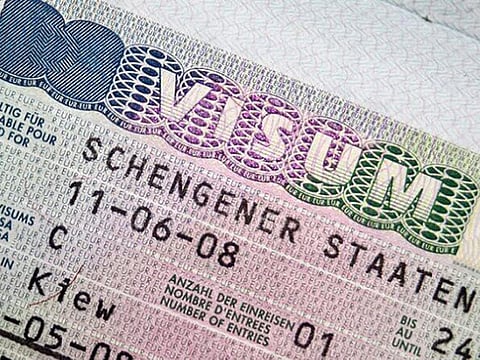US, Schengen visa applications in UAE: How to avoid getting duped by fake agents, 'guaranteed approval' scams
Travel agents charging premium fees for 'express slots' have no official authority

Dubai: With international travel surging from the UAE, residents are increasingly falling prey to unauthorised visa agents making false promises of guaranteed approvals and express appointments—practices that could lead to rejected applications or even blacklisting by embassies.
Industry experts are urging travellers to understand the difference between official visa service providers, embassies, and unofficial concierge services before handing over documents or money.
Here are some guidelines that would help you ahead of your upcoming Winter break travel:
Three types of visa service providers
Embassies and Consulates are the ultimate authority on visa issuance. They define visa policies, approve or reject applications, and conduct interviews or background checks. Whilst many embassies outsource administrative tasks, they always retain final decision-making power.
Examples include UK Visas and Immigration, the Embassy of Austria, and the Consulate General of Germany.
Official visa service providers are authorised intermediaries between applicants and embassies. Companies like VFS Global, TLScontact and CGI handle document collection and verification, biometric data collection, and application submission in standardised, secure processing environments. Their websites are typically linked directly from embassy portals.
Concierge services and travel agents are unofficial facilitators with no formal authority. Whilst some legitimately assist with form filling and document preparation, others charge excessive fees or make misleading claims about appointment availability or approval guarantees. Such companies cannot influence visa decisions or access special appointment slots despite claims to the contrary.
Red flags to watch out for
Be sceptical of agents offering "guaranteed approvals" or "express slots" for premium fees. These are clear warning signs of potential fraud.
For Schengen visa applications—which cover 27 European countries—specific rules apply that unscrupulous agents often manipulate:
Applications must be submitted to the country that is your main destination
If visiting multiple countries, apply to the country where you'll spend the most nights
If spending equal nights in multiple countries, apply to your first port of entry
Some agents promise early appointments by directing applicants to countries that don't fit these criteria, or by providing fake sponsorship letters, claiming they'll speed up processing. These practices violate Schengen visa guidelines and can result in rejection or blacklisting.
"Beware of agents who promise early appointments or guaranteed visas by manipulating the system," industry sources warned. "These practices are against Schengen visa guidelines and can lead to visa rejections or possible blacklisting by the respective embassies or consulates."
Correct route for visa application
Always start with the official embassy website of the country you're visiting. Look for links to authorised visa service providers—these are the only legitimate channels for submitting applications.
Avoid third-party websites not endorsed by embassies, even if they appear professional or rank highly in search results.
Official service providers never guarantee visa approval because that decision rests solely with embassies. If someone promises you a visa, they’re lying.
Protect yourself
Check the official embassy website before starting any visa application. If an agent contacts you promising faster service or guaranteed approval, verify their claims directly with the embassy.
Remember that no third party can influence an embassy’s decision to grant or reject a visa. Anyone claiming otherwise is either misinformed or deliberately misleading you.
Understanding who does what in the visa process can save you time, money, and stress. In the complex world of international travel, a little awareness goes a long way in ensuring your visa journey is smooth and secure.
Sign up for the Daily Briefing
Get the latest news and updates straight to your inbox



